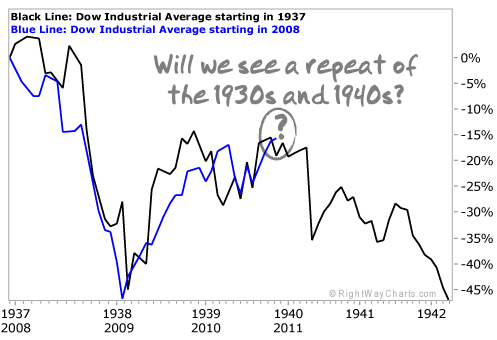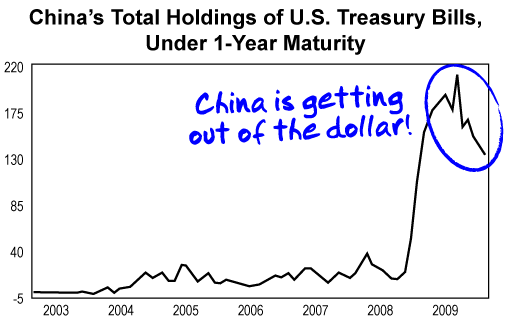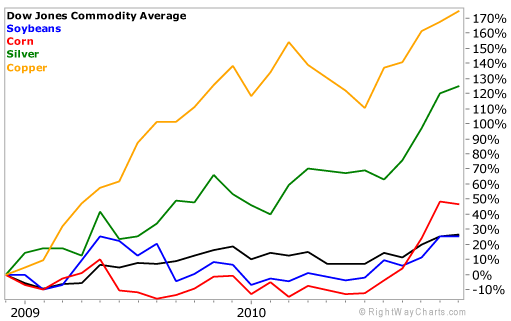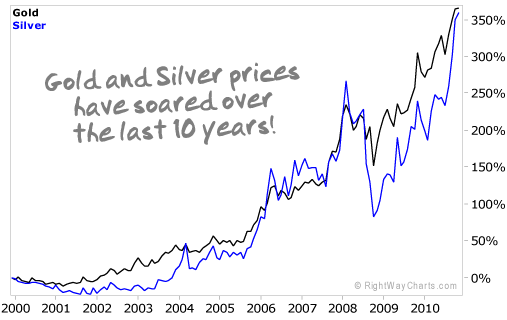Important note:
It is with a heavy heart that I am now issuing the highest level alert to my readers than I have to date. The threshold for an alert is one or more world events that personally cause me to take action.
I'm making this alert publicly available less than 36 hours after releasing it to my enrolled subscribers given its importance and the speed at which events are accelerating.
The substance of this alert centers on the unknown aftershocks that may result from the world's third largest economy, Japan, rapidly shifting from an exporter of funding to a consumer of it. In situations like these, we are by definition operating with incomplete and often confusing information, and events are developing more rapidly than they can be fully analyzed and internalized. We regret in advance any mistakes that we might make due to making calls and decisions in this highly fluid environment.
This alert warns you that major world-changing events are now underway and that your personal preparations for an uncertain future should either be completed or take on a new sense of urgency. On the basis of the information contained here and in the past two days of posts, I am personally ratcheting up my preparations, making purchases, and topping off what needs to be topped off.
Important caveat: At this point in time, I cannot fully support 100% of my concerns with hard data and evidence. Some of what has tipped me into this state of urgency is data, evidence, and stories that I can point to. Some is due to the absence of data or information, the remainder results from watching market gyrations and correlations shift into new patterns, which tell me something is afoot.
I have not been this concerned since October of 2008.
Some Background
Within hours of learning of the event at Reactor 1 in Japan, I had looked at the evidence available, drawn a few conclusions, and then checked to see what the experts were saying. Never quite sure of what sort of personal and/or professional limitations are in play, I rarely start with anyone's assessment but my own. It's part of trusting myself and it has worked remarkably well for me and my subscribers over the years.
Here's what I wrote in the blog on the morning of Saturday, March 12, 2011 on Japan's nuclear incident:
There have been reports from Japan's nuclear agency that radioactive cesium and iodine were detected outside of the facility, which can only happen if the core has been exposed somehow. Perhaps that's all under control now, but the evidence for very high temperatures, the explosion of the containment building, a 12-mile evacuation zone, and the presence of cesium and iodine all indicate that perhaps the complete situation is not being shared with the public.
If you live in Japan, you should be heading well upwind of this facility and have potassium iodide pills on hand. I would personally be reading the wind forecasts and assuring that I was upwind.
My expertise involves making sense of the world in relatively short order. It also helps me smell B.S. remarkably quickly, especially from official sources. The nuclear situation in Japan struck me from the outset as being rather more serious than described, and this has proven true. I take no pride in this particular 'victory,' and instead feel the burden of having to be the bearer of bad news.
The nature of this alert is to let you know that I consider the chance of a renewed round of economic and fiscal crises to result from the chaos that is currently engulfing Japan and the MENA region to be extremely high.
A Global Meltdown
For decades, the world has been running its own nuclear-style reaction, only in the currency and debt markets, where exponentially-accelerating piles of debt and money have spun about faster and faster in a gigantic, complex, coordinated reaction, the core of which is, and always has been, the United States.
At the very center of this ungainly money reactor is the main fuel pile itself, the US Treasury market. With any interruption to smooth flow of money through this pile, it will immediately become unstable.
The threat I see goes like this:
Stage 1: The world watches, riveted, as Japan suffers a tragic and horrible earthquake and tsunami, but as horrifying as these are, they are localized phenomenon affecting a relatively small percentage of the country. The real trouble lurks within damaged nuclear plants, which are now ruined and will never again produce electricity for Japan, creating instant shortages that will take years to remedy. Worse, a dangerous plume of radioactivity is carried south by winds. Tokyo partially empties and shuts down for all practical purposes.
Stage 2: The abrupt slow down of the world's third largest economy alters the smooth flow of cash around the globe, and even causes reversals of some other long-standing flows. Chaotic eddies emerge in a decades-old pattern of ever-increasing flows of money into and out of the money centers, and various carry-trade and other interest-rate-sensitive strategies blow up. Manufacturing in Japan screeches to a halt, disrupting just-in-time manufacturing strategies both internally and across the globe.
Stage 3: In order to fund the rebuilding effort, Japan has to buy a lot of items from foreign suppliers at the same time that its exports plunge precipitously. At first Japan simply does not participate in US Treasury auctions, leading to a shortage of buyers. But eventually Japan has to sell some of its vast hoard of US bonds in order to pay for external items needed for its reconstruction. Further, insurance companies, huge holders of US bonds, face stiff liability claims in the wake of the worst natural disaster to hit a heavily industrialized center and are forced to redeem enormous amounts of Treasury paper. US Treasury yields begin to climb.
Stage 4: Continuing unrest in the MENA region serves to keep oil elevated and local funding needs high, while Europe's weaker players (the PIIGS) continue to slip under the waves. Money continues to ebb away from the US Treasury market. Forced by circumstance, the Federal Reserve reverses its linguistic course and opens the monetary floodgates once again. There's nothing like a crisis to justify more money printing, especially to a one-trick pony (the Fed) that only knows how to stamp its hoof on the 'print' button.
Stage 5: An increasingly chaotic monetary and fiscal situation spills over into the derivatives arena, creating a number of financial accidents. Stressed governments find themselves in more of an arguing mood than a pull-together-and-sing-Kumbaya mood, and agreements are hard to come by. Banks begin to fail again, global trade falls off, unrest continues to build, and then it happens - a currency crisis.
Stage 6: Everything changes. Faster than you think.
I wish I could completely quantify and justify the reason for this assessment, but I cannot at this time. Yes, we've got some very serious market turbulence to point to:
From ZeroHedge:
Japan's nuclear crisis has deepened and we deeply regret to say that there is now the real possibility of a nuclear catastrophe. Investor panic has set in with the Nikkei down over 16.5% in two days and the Topic index down by 17% - its worst two-day loss since the 1987 Wall Street stock market crash.
The cost to insure Japanese debt has surged to a record with credit-default swaps protecting Japanese government debt for five years soaring 27 basis points to a record of 125 basis points.
One UBS trader said that the deteriorating nuclear crisis had led to "near panic across local credit-default swap markets." While most equity indices and commodities have fallen, some sharply, gold has remained resilient and is down 1% in US dollar terms and is higher in Australian dollars which like other so called 'commodity' currencies has come under pressure in recent days.
The nuclear meltdown has led to a market meltdown. Market breaks can quickly lead to supply shortages and other unpleasant realities.
Shifting Baselines
The problem with these fast-moving situations is that everything shifts from beneath your feet and events fundamentally change so quickly that you do not have time to adjust properly before the next insult arrives.
For example, I pride myself on ingesting massive amounts of information and processing it logically and relatively completely. But right now I am overwhelmed by too many situations. I should know who the opposition leaders are in Bahrain, how many troops have crossed from Saudi Arabia, what sorts of equipment they brought (as an indication of whether they plan to stay for a little while or a long while), and so forth. But I only know that troops have crossed the border; I consider this to be a bad sign for global oil price stability, but know very little else.
And I am not entirely clear on the inner machinations of the European debt crisis any more. I am completely consumed by following the developing nuclear crisis in Japan and trying to determine how that could, will, should impact our readers in Japan, and the world economic landscape.
The problem is captured perfectly in
this post by Debu:
Another slightly surreal day in Tokyo which I largely spent buying food in case we have to stay indoors for an extended period due to fallout and/or if food supplies are disrupted by distribution problems. (I have been remiss in my prepping, I admit. I will spare you my lame excuses as to why.) Near pandemonium in some supermarkets which surprised me given the generally anodyne tone of the reactor situation coverage on the TV. Possibly it is simply worries about empty shelves feeding on itself.
Still, despite the devastation a few hundred kilometres away in the areas affected by the earthquake/tsunami (words fail), in Tokyo we are only inconvenienced in trivial ways. And so, the sense of unreality. There were emails today from my Japanese mates saying they were resigned to there being no hockey for awhile because the rinks will be closed because of the power cuts (and serious damage to the roof of our home rink). Or, whether it is milk is hard to come by (but still lots of wine and whiskey available), or some shops are closed to save power, or limited train service, etc. it is all inconsequential trifles. Given what is happening up north it is enough cause a bit of survivors' guilt.
Many thanks to all on this forum for the info and the insights. It has, and will continue to be I suspect, my best source of information and advice.
One name for this process of only very slowly coming to grips with an enormous change when it happens at a slow enough pace is "shifting baselines." It means that if you had put these same people to sleep a week ago and woke them up today, the shock of the reality of today's situation would immediately jar them into action. But somehow, as things change seemingly gradually from hour to hour and day to day, the change itself can prove oddly paralyzing, and this is because our baselines shift. What would have been abnormal yesterday is normal today.
Last week the residents of Tokyo were sympathizing with the plight of their neighbors to the north, and then they were hearing about some controllable problems with some nuclear plants, and then they were hearing about maybe some more serious difficulties, and today they find themselves scrambling to empty store shelves and get out of Dodge, so to speak.
(Reuters) - Radiation wafted from an earthquake-stricken nuclear power plant toward Tokyo on Tuesday, sparking panic in one of the world's biggest and most densely populated cities.
Women and children packed into the departure lounge at an airport, supermarkets ran low on rice and other supplies and frightened residents, tourists and expatriates either stayed indoors or simply left the city.
"I'm not too worried about another earthquake. It's radiation that scares me," said Masashi Yoshida, cradling his 5-month-old daughter Hana.
The nail-biting eased in the afternoon after Chief Cabinet Secretary Yukio Edano appeared on national television saying radiation levels at the troubled Fukushima Daiichi nuclear-power complex had fallen dramatically since morning.
But confidence in the government is shaken and many decided not to take chances, especially after radiation levels in Saitama, near Tokyo, were 40 times normal -- not enough to cause human damage but enough to stoke fears in the ultra-modern and hyper-efficient metropolis of 12 million people.
Many hoarded food and other supplies and stayed indoors. Don Quixote, a multistory, 24-hour general store in Tokyo's Roppongi district, was sold out of radios, flashlights, candles, fuel cans and sleeping bags on Tuesday.
At another market near Tokyo's Yotsuya station, an entire aisle was nearly empty on both sides, its instant noodles, bread and pastry gone since Friday's earthquake and tsunami killed at least 10,000 people nationwide and plunged Japan into a twin nuclear and humanitarian crisis.
Time to Prepare
Okay, folks, this is not a drill.
Events have now sped up to the point that we cannot predict what will happen next. At this point a systemic banking crisis, complete political upheaval in one or more countries, a currency crisis, or a debt crisis are all within the realm of the possible.
This is the most difficult Alert I've ever had to write, because I know I have not yet processed all the necessary information to truly assess the risks. I am operating on gut instinct here, and several of you have already reminded me to trust myself. Thank you. That's what I am doing now.
The risks I am most concerned about striking outside of Japan are:
A derivative-fueled banking crisis. Another banking crisis could shut down international monetary flows for a period of time, which would severely impact your ability to access your money, conduct trades, or otherwise take care of business.
Critical shortages. Already we know that much of Japan's manufacturing output will be crippled for a while due to quake damaged plants being destroyed, workers failing to show up as they attend to their families in a moment of deep crisis, and electricity shortages due to destroyed power plants being taken permanently off-line. How much and which products will be affected will take weeks of effort to discover, as our highly integrated global supply network has an unknowable number of nodes that originate in or pass through Japan.
A global GDP insult. Building on the idea of critical supply chain disruptions and shortages, it is a safe bet that the world economy will take a hit now that various products cannot be manufactured and sold. Rather than a gentle slow-down that can be easily managed, the risk I see here is akin to a large wrench being tossed into a delicate transmission. The risk springs less from how much you slow down, but rather how fast you do it. This global GDP hit will further expose the weakness at the periphery, probably taking down the weaker players once and for all.
The main story line here is that Japan is a critical and embedded player in both the financial and productive economies, and it has suddenly, almost instantly, been taken off-line. We don't know what might happen next, but we should be prepared for anything.
My Advice
Recently I had advised readers to be ready for a big downturn linked to the idea of a QE cessation. I am going to retract that somewhat (almost entirely), because this Japan crisis will provide all the political cover necessary for more printing.
Nonetheless, a market rout is on, but for entirely different reasons than I first projected.
At any rate, the time to move to cash from stocks is slipping quickly past, if not already gone, but if you haven't made that move yet, you should consider waiting for the next "Bernanke bounce" in which a few hundred billion are tossed into the kitty to stabilize the markets.
This alert is going to be a living document in the sense that I will be constantly updating it as time goes on and events unfold. The first stage of my advice centers on the basics. You need to have all of your basic preparations completed at this time. Food, water, medical kits, shelter, cash out of the bank, and all the rest should absolutely be in place at this time.
Get the basics done. Now.
If you live on the west coast of the US, you must prepare for a fallout event even though this is extremely unlikely due to the distances involved. The concern here is that nearly 40 years of spent fuel is stored onsite and apparently boiling away its water and possibly burning. This means buying KI tablets for at least a week for every member of your family and being prepared to spend up to a week 'taped up' inside your house if it comes to that. Plastic, duct tape, and board games are what you need. I hate having to even suggest this sort of preparation. But while remote, there's always the chance that a quirk in the air flow patterns could lead to less dilution than expected across the ocean and that a relatively small area of the west coast could receive a surprisingly strong concentration of contamination. Again, this is very remote, but so was the idea of four plants all melting down at the same time.
Get what cash you can out of the bank. You can always put it back later on. Keep it somewhere safe.
Move any money you can from less liquid to more liquid vehicles. You want to be able to access your money in a hurry should that become necessary. Re-read
Taking Control of Your Personal Finances if necessary. I outline all the reasons and a few methods for 'becoming more liquid.'
Top off your fuel tanks.
Buy extra food at the grocery store.
Have long-term storage food put aside.
Take medicines? Be sure to get extras.
I am still holding onto all of my gold and silver holdings as I cannot imagine any possible policy responses that will bolster anyone's faith in fiat currencies. That said, I am expecting short-term declines, possibly significant, in the US paper price for these metals on the basis of a liquidity crisis skimming the speculative component of their price off the top. I really don't know how much this will be, but it's certainly not insignificant.
When you stock up on things at the store(s), think also about friends family, neighbors, and all the other assorted people you care about who have almost certainly done little or nothing to prepare. What would they like? Don't overlook comfort and luxury items that command a mental premium in a time of crisis. Chocolate comes to mind.
Timing
As always, I have no idea if anything is going to transpire or not, or when. How's that for indecisive? But I can tell you that the pressures are larger than they’ve ever been throughout this long emergency and that conditions are ripe for an avalanche. My sincerest hope is that this will all blow over. But hope alone is a terrible strategy, and so we prepare.
My best guess is that the situation in Japan will unfold over the next two weeks, with a full blown funding and fiscal crisis (of confidence) blossoming there over that time. Already we are seeing credit spreads on Japan's sovereign debt begin to skyrocket, meaning that an increasing chance of a sovereign default is being priced into the debt markets. This is the same dynamic we saw with Greece, then Ireland, Iceland, too, and so on. Only this time it is happening to the world's third largest economy.
Two weeks after that, I expect that the first real product shortages and associated work stoppages will begin to hit the US and European economies. I expect the difficulties to surface first in Europe followed by the US. Somewhere in this zone we will get the next solid commitment to print, print, print, probably as a joint exercise of both continents.
Taken together, I think we've got at least a month until things have shifted enough that preparations will become either difficult or irresponsible.
Use this next month very wisely.
Remember, it's better to be a year early than a day late. So get out there and prepare responsibly.
Above all, it is our duty to remain calm, focused, and helpful to those around us. We are all experiencing anxiety and fear to greater and lesser degrees. It is my hope that we can use the privacy of the comment thread below to work through whatever issues arise for each other, whatever those may be, and to help each other make the best decisions we can in an increasingly chaotic and uncertain environment.
Welcome to the nexus of multiple exponential curves. We always knew things would speed up along the way, and so they have. Let's do the best we can.
Events are unfolding in a manner entirely consistent with the framework I laid out in my recent
Guide to Navigating the Coming Crisis. As the report predicts: things are speeding up, events are progressing from the outside in, and soon enough everything will be substantially different than you remember and it won't be completely obvious how that happened due to the phenomenon of shifting baselines. Reading it should be a particular priority for those with family or substantial investments to protect.
Click here to read the free executive summary.
Below you will find the original post I started on Saturday, hours after the explosion in the first reactor. It has since become a primary source on the unfolding tragedy for tens of thousands of people around the world - largely due to the extremely knowledgable contributions of experts in the CM.com community. More to come as circumstances develop.
Your faithful information scout,
Chris Martenson
A Note on Prepping Responsibly
To prepare responsibly, you should do it before a crisis hits, when there are plenty of goods, food, and other necessities available for purchase and your purchases actually increase the local resilience of your community. After a calamity has struck, say after the earthquake in Northern Japan, then any buying or accumulating you might do can be perceived as an act of hoarding, something we'd like to see everyone avoid.
If you have not done so, you need to be sure that you have covered all of the basic steps recommended in our
What Should I Do? guide.
At the very least, you'll get peace of mind and have the chance to be among the people who are in a position to help others when the time comes. At the most, it could be the difference between a rather miserable piece of time spent wishing you’d done more to prepare and a relatively comfortable stretch of time.














